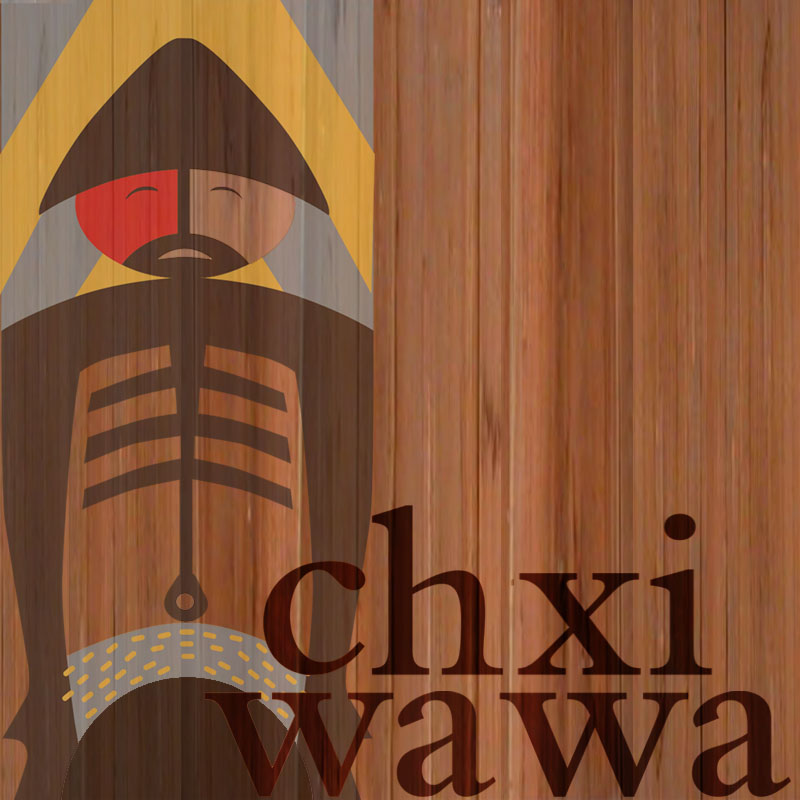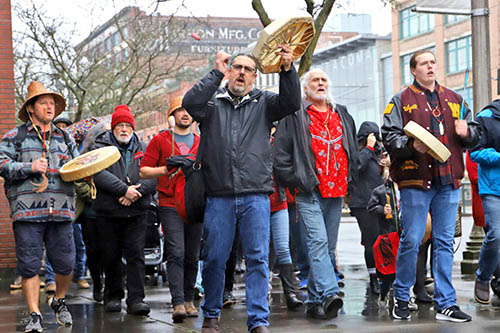By Karina Brown | January 25, 2021 | Courthouse News Service | Chinook Observer file photo
TACOMA — The U.S. Department of Interior will have to reassess its decision to deny the Chinook Indian Nation the small sum it awarded 50 years ago for the vast territory surrounding the Lower Columbia River, where their oral history says they have always lived.
In 1970, the Indian Claims Commission awarded $48,000 to the Lower Band of Chinook and Clatsop Indians — two of the five tribes that make up the Chinook Indian Nation today. The government put the money in a trust account, where it has stayed, growing interest to the tune of over half a million dollars. The Chinook people have never seen a dime of that money.
But Chinook Chairman Tony Johnson says the money itself is not the point.
“Our interest in these dollars is not in using them,” Johnson said. “Our interest is in the justice of not having another part of our history erased.”
He added that the government should be ashamed to offer such a pittance.
“The amount of this award is egregious in terms of the amount of money we were awarded for some of the most beautiful and important lands in the United States,” Johnson said.
‘The amount of this award is egregious in terms of the amount of money we were awarded for some of the most beautiful and important lands in the United States.’
Despite a thousands-year history that includes receiving Lewis and Clark when they arrived at the Pacific, and many convoluted legal entanglements with the United States, the government has never formally recognized the Chinook Indian Nation. That means they don’t have a reservation, or access to health care under Indian Health Services.
The tribe negotiated treaties with the U.S. that were never ratified by Congress. They first sued the government in 1899, obtaining a $20,000 judgment on their claim for land rights that was never fully paid. In 1958, they went to the Indian Claims Commission, eventually obtaining the $48,000 award.
‘Bizarrely’ drafted federal rule
They’ve been fighting for federal recognition for decades and had it briefly in 2001, before that status was revoked by the George W. Bush administration. Most recently that fight has been in the courts. In 2017, they sued again, claiming the government had unfairly refused to recognize them and barred their access to the 1970 award.
In January last year, U.S. District Judge Ronald Leighton sent the claims for recognition back to the Department of Interior. Leighton, a George W. Bush appointee, stopped short of directly ordering the department to let the Chinook again petition the government for recognition.
On Jan. 21, another judge took up the Chinook’s claims over the monetary award issued in 1970. This month’s ruling was issued by U.S. District Judge Marsha Pechman, a Bill Clinton appointee who took over the case after Leighton retired last year.
The government has refused to give the money in the trust account to the Chinook, claiming they are not the same people who originally petitioned to be compensated for their land.
Chairman Johnson, descended directly from Chinook tribal leaders who signed the treaties Congress never ratified, and the leaders who filed the 1958 petition, called that argument ridiculous.
“There is no denying that it is our community that brought this action to the ICC, that was awarded the result of it and received quarterly statements on these funds as well as constant communication with the government about plans for distribution of the funds,” Johnson said. “There is no other community that could claim any connection to having brought the case or the awarding the case.”
Similar to Leighton’s ruling on the Chinook Nation’s desire to petition again for federal recognition, Pechman found merit in the Chinook’s claim that it is the rightful recipient for the money in the trust account, but sent the question back to the Department of Interior to resolve.
“The Court remains acutely aware of the fact that the Department of Interior should have long ago identified the beneficiaries and come up with a plan of distribution,” Pechman wrote. “The Court also trusts that the Department of Interior will promptly resolve these issues notwithstanding the record of delay.”








